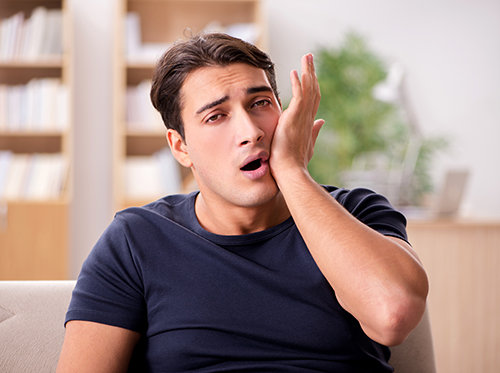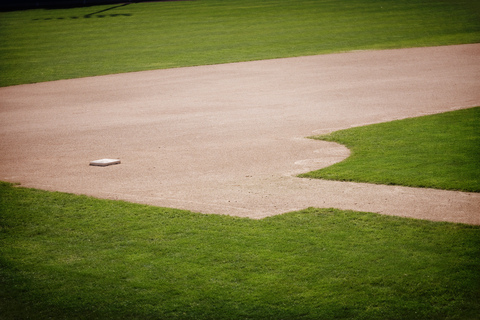June 27th, 2018

Have you ever wondered why people have wisdom teeth? These are a third set of molars that come in behind the rest of all your other teeth, usually during early adulthood. Scientists and anthropologists believe that wisdom teeth are a result of evolution, because our ancestors needed these extra teeth to handle their primitive diets. Nowadays, the average diet consists of fewer hard-to-chew foods, which renders wisdom teeth largely superfluous.
Most people begin to experience wisdom teeth pain between the ages of 17 and 25. Our ancestors nicknamed them wisdom teeth because they appeared at a time in life when we supposedly grew wiser.
If you’ve already had your wisdom teeth removed, you know how painful they can become if they aren’t taken care of promptly. If not, watch out for discomfort in the back of your mouth and let Drs. Adriana Amzar and Paul Birsila know right away if you think your wisdom teeth are coming in.
In some cases, people do not experience any problems or discomfort with their wisdom teeth. These patients may keep their wisdom teeth intact if there’s enough room in their jaw to fit them properly. But this is generally not the case, so wisdom teeth can cause several concerns, depending on which direction they grow.
Common problems include:
- Damage to surrounding teeth due to the pressure from the emerging teeth
- Infection that causes the surrounding gums to swell and become painful
- Tooth decay due to the lack of room to clean the teeth properly
- Impaction (when the tooth is unable to break through the skin)
- A cyst that may damage the jaw, the surrounding teeth, and nerves
If you haven’t had your wisdom teeth removed yet, there are many symptoms to watch out for when they begin to grow. Symptoms may include:
- Pain or stiffness in the jaw
- Tooth irritation
- Swelling of gum tissue
- Crowding of other teeth
- Spread of tooth decay or gum disease on nearby teeth
If you’ve noticed these symptoms, schedule an appointment at our Ottawa office. Don’t forget: This is a common procedure that will take some time to recover from. Allow your mouth to heal, and then you’ll be able to get back to a normal routine quickly and be free from pain!
June 20th, 2018

Sleep apnea is an increasingly common medical condition, and one that can have a truly devastating effect on the waking life of the sufferer. Those who suffer from the disorder may find that they suffer any or all of the following side effects:
- Saliva has several important jobs, and one of them is to protect and heal your tongue, your gums, and the inside of your mouth. Snoring and sleep apnea dry out your mouth, meaning there isn’t enough time for your saliva to do all this vital work.
- Over an extended period of sleep apnea, it’s likely that the sockets of your teeth will begin to dry out overnight as a result of your gasping for air and snoring between breaths. If this happens too frequently over a long a period of time, it can start to loosen your teeth.
- Those with sleep apnea often also practice bruxism, which is the habit of clenching and grinding your teeth together as you sleep. This can lead to all manner of problems, including TMJ disorder, damage to the enamel, headaches, and toothaches.
- For obvious reasons, sleep apnea does not lead to a particularly good night’s sleep. This means that sufferers are often tired and irritable, and suffer from the many other ill effects of sleep deprivation.
- While it is unclear whether the reasons behind this are correlative or causative, it has been suggested there are links between sleep apnea and cardiac arrests, depressive disorders, Type Two diabetes, cancerous tumors, “silent” strokes, and various complications of pregnancy.
While sleep apnea can be a troubling condition, Drs. Adriana Amzar and Paul Birsila and our team at Gilmour Dental Centre will tell you it is eminently treatable. There are a number of ways to combat it, ranging from simple sleep hygiene to use of a CPAP machine. Of course, if it is possible for you to reduce your weight a little in a safe and healthy way, some have found that is also helpful in combating the problem. Sleep apnea is very easy to treat, once it has been correctly identified.
If you think you may be suffering from sleep apnea, or if you would like to know more about the condition, please give us a call at our convenient Ottawa office to schedule an appointment with Drs. Adriana Amzar and Paul Birsila.
June 13th, 2018

Sports are great for children for a variety of reasons. Children can develop their motor skills, learn how to solve conflicts and work together, and develop their work ethics. As a parent, you may recognize the benefits of sports, but also naturally worry about your child’s health and safety. Your job goes beyond providing a water bottle and making sure your child follows the rules of the game.
Although you may not think of your child’s teeth first when you think about sports, accidents can happen that affect your children’s teeth. A stray hockey stick, an errant basketball, or a misguided dive after a volleyball are examples of ways a child could lose a tooth. In fact, studies show that young athletes lose more than three million teeth each year.
Becoming a Better Athlete to Protect Teeth
Becoming a better athlete involves refining skills, learning the rules of the game, and being a good sport. These components are not just about winning. They are also about safety. Young athletes who are better ball-handlers and who are careful to avoid fouls and penalties are less likely to have harmful contact with the ball, teammates, or opponents. Children who are better roller-bladers are less likely to take a face plant into the blacktop, and more likely to save their teeth. Being a good sport and avoiding unnecessary contact is one way to protect teeth.
Proper Protective Equipment for Teeth
If your child is in a sport that poses a high threat to teeth, it is essential for your child to wear a mouthguard. Mouthguards fit your child’s mouth and consist of soft plastic. Drs. Adriana Amzar and Paul Birsila can custom fit a mouthguard if generic ones are uncomfortable. While children may resist wearing a mouthguard initially, your persistence in insisting that they wear it should be enough to convince them. A helmet or face mask provides additional protection.
While prevention is best, rapid treatment can improve the situation if your child does happen to lose a tooth during sports. Rapid implantation can work in about ten percent of cases. To learn about ways to save a lost tooth, contact our Ottawa office.
June 6th, 2018

With the warmer and longer days here, we know many of our patients at Gilmour Dental Centre will be much more active in the summer. Though most of our patients are probably already ready to hit the field for some summer fun, we thought we would discuss a few precautions to take when it comes to keeping your teeth safe as you enjoy playing your favorite sports.
Use a Mouthguard
Are your kids participating in contact sports this summer? If the answer is yes, we strongly encourage you to have them fitted for a mouthguard at Gilmour Dental Centre before the season starts. Athletes can avoid serious mouth and jaw injuries by using a mouthguard.
Be Mindful of Sports Drinks
While sports drinks can be refreshing after a game, they unfortunately contain high levels of sugar and citric acid, which are known to erode the teeth and reduce the minerals in the outer tooth enamel. The simplest way to prevent sports drinks from damaging your teeth? Avoid them completely and drink water instead. Water is a great option to keep you hydrated before, during, or after a game.
Floss, Floss, Floss
While we always tell our patients about the importance of flossing, it is especially important on the day of the game. Athletes are likely to consume more sugar; from energy bars and chews to gum, you are not doing your teeth any favors. All that sugar may give you that extra bounce in your step when out on the field, but we want you to remember to floss when you get home, or else contend with an increased risk of cavities down the road.
If you have any questions about keeping your teeth and mouth healthy while participating in summer sports, please give us a call at our Ottawa office! Have fun!









